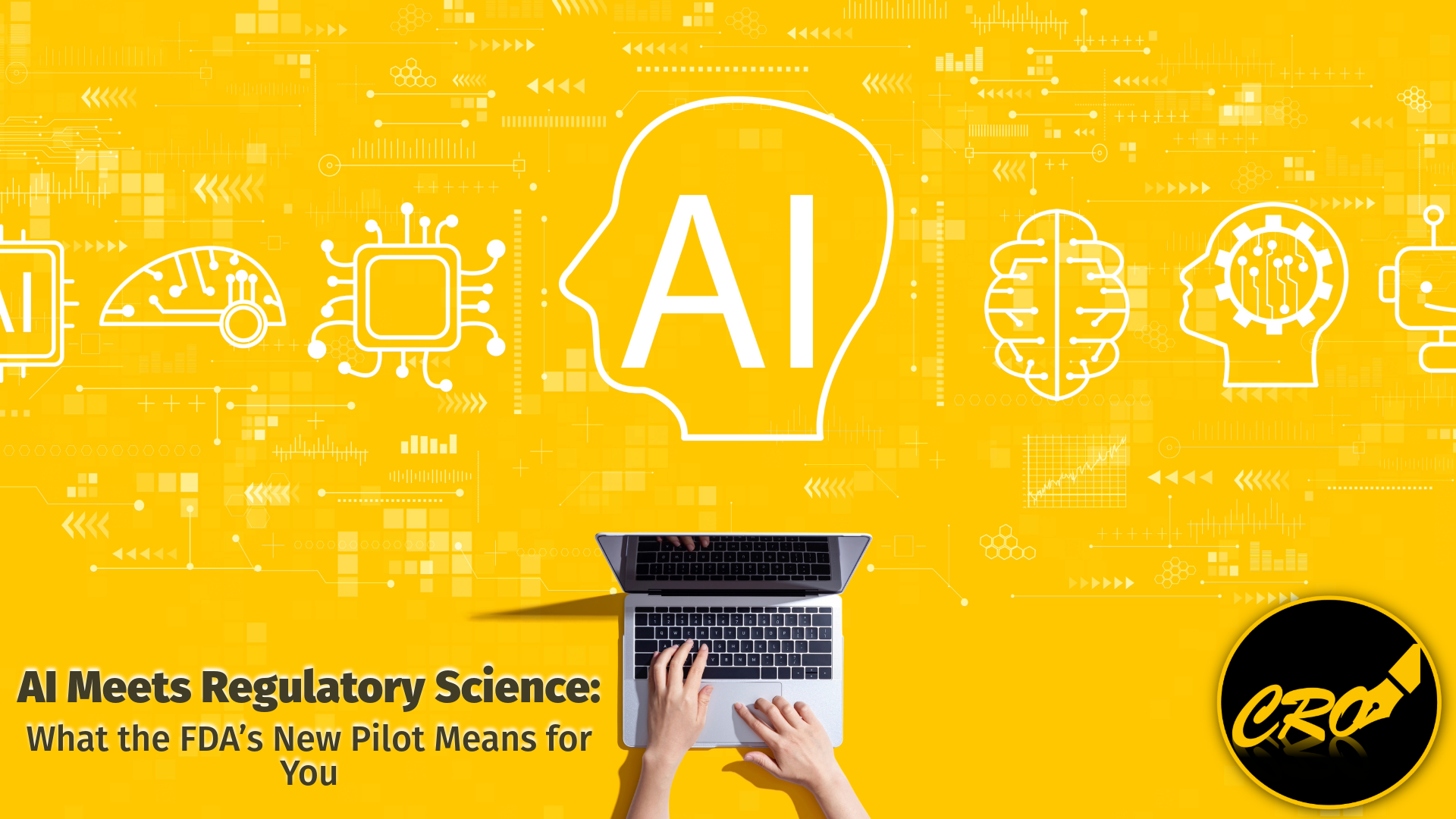FDA’s AI Review Pilot: A Glimpse Into the Future of Regulatory Science
On May 21, 2025, the FDA shared big news: it had successfully completed its first AI-assisted scientific review pilot. This marks a major step forward in the evolution of regulatory science. As part of the agency’s broader commitment to modernizing drug review processes, this pilot represents more than a technical experiment: it signals a culture shift toward integrated AI governance, efficiency, and transparency.
At CRO Consulting Inc., we’re closely watching how this rollout will impact Sponsors, CROs, and regulatory teams preparing submission-ready packages. Here’s what you need to know.
The Pilot: AI as a Review Assistant, Not a Replacement
The pilot focused on assessing how AI tools can support FDA reviewers in evaluating scientific data, particularly in New Drug Applications. Rather than replacing human reviewers, AI was used to identify patterns, flag inconsistencies, and surface relevant sections of voluminous submission data for expedited assessment.
This collaborative model proved promising, reducing manual review time without sacrificing scientific rigor or regulatory compliance.
A Strategic Timeline: Full Implementation by June 30, 2025
Following the pilot’s success, the FDA is quickly rolling out AI integration across its review divisions. The agency plans to implement this technology across multiple regulatory functions by June 30, 2025. With this aggressive timeline, stakeholders across the industry should prepare now for potential downstream impacts on submission expectations and communication with regulators.
What This Means for CROs and Sponsors
1. Smarter Submissions = Competitive Advantage
As the FDA adopts AI tools internally, Sponsors should likewise explore AI-driven document authoring, eCTD readiness checks, and data harmonization strategies. Submissions that are clean, standardized, and machine-readable may move more smoothly through this new review model.
2. Anticipate Shifts in Guidance and Expectations
We expect the FDA will issue updated recommendations around data formatting, submission structure, and potential AI-compatible modules. Early alignment with your CRO or regulatory partner is essential to stay ahead of these shifts.
3. Transparency and Trust Will Remain Front and Center
Even with AI in the mix, the FDA emphasized the importance of transparency, ethical data use, and maintaining public trust. Sponsors should document their own use of AI in drug development or submissions, as this may become part of future sponsor-reviewer dialogue.
CRO Consulting’s Take
The FDA’s move is a bold and necessary step forward in modernizing regulatory operations. At CRO Consulting, we believe that smart tools should empower, not replace, the human expertise behind drug development. We help Sponsors streamline their submissions through both traditional methods and emerging technologies—including AI-driven data analytics and submission-readiness services.
As the FDA transforms its review processes, now is the time to future-proof your submissions.
Need help getting your submissions AI-ready?
CRO Consulting Inc. supports Sponsors through end-to-end submission planning—from protocol to package. Let’s talk about how we can help you stay ahead of these changes and prepare for the FDA’s next wave of innovation.
References
U.S. Food and Drug Administration. FDA Announces Completion of First AI-Assisted Scientific Review Pilot and Aggressive Agency-Wide AI Rollout Timeline. Published May 21, 2025. Accessed May 27, 2025. https://www.fda.gov/news-events/press-announcements/fda-announces-completion-first-ai-assisted-scientific-review-pilot-and-aggressive-agency-wide-ai
U.S. Food and Drug Administration. Artificial Intelligence (AI) & Machine Learning (ML) in Drug Development. Updated April 2024. Accessed May 27, 2025. https://www.fda.gov/science-research/science-and-research-special-topics/artificial-intelligence-ai-machine-learning-ml-drug-development
U.S. Food and Drug Administration. Advancing Regulatory Science at FDA: Focus Areas of Regulatory Science (FARS). Updated October 2023. Accessed May 27, 2025. https://www.fda.gov/science-research/about-science-research-fda/advancing-regulatory-science-fda
Makower J. AI in Drug Development: Regulatory Readiness and Industry Trends. Regulatory Focus. Regulatory Affairs Professionals Society (RAPS). Published February 2025. Accessed May 27, 2025. https://www.raps.org/news-and-articles/news-articles/2025/2/ai-in-drug-development-regulatory-readiness-and-industry-trends



